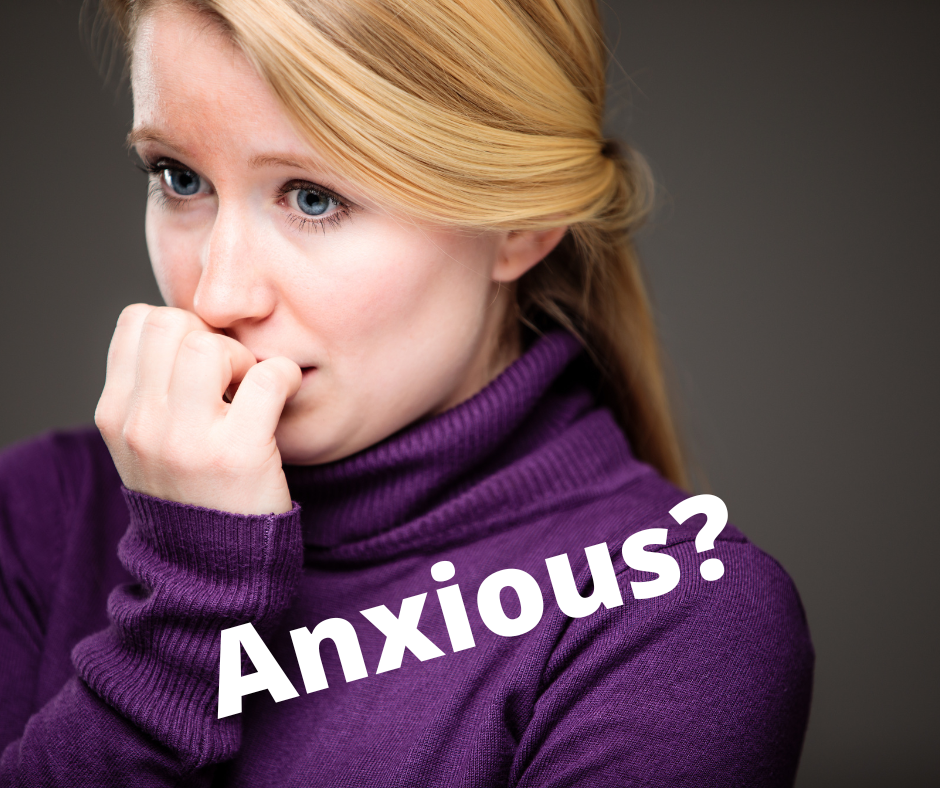Menopause and anxiety – this can definitely be a thing.
And it often isn’t talked about as much as the more common symptoms like hot flushes.
Before Menopause you might have felt quite confident, but as you start to go through you may worry more, be anxious about certain situations, be more tense, nervous, about doing things that you never had a problem with before.
What can trigger Menopause and anxiety ?
Estrogen is involved in regulating serotonin, the ‘feel good’ chemical as it’s known, as it has lots of positive effects on mood, energy, emotions & sleep.
Falling levels of estrogen can have a direct effect on your mood, which makes mood changes really common during Menopause ( we’re using Menopause here to cover Perimenopause, Menopause & post Menopause).
You may have panic attacks, or your anxiety may get worse, or you start experiencing anxiety for the first time.
If you’ve sufferred with post natal depression.
Or have a history of premenstral syndrome in the past, then you are more likely to have some mood changes during Menopause, as you’re likely to be more sensitive to hormonal changes.
Another trigger for Menopause and anxiety is the stress that many of us are under when reaching this phase of our lives.
You may be an unpaid caregiver for elderly or ill parents, be worried or anxious about your child or children leaving home, have a stressful job or have financial concerns.
These type of events, together with your declining hormones can really play a signifcant role in Menopause and anxiety, as well as other Menopause symptoms, like poor sleep & hot flushes etc.
There really is a lot going on, so try not to be too hard on yourself and finding some time for you is a MUST.
Action you can take for Menopause and anxiety
Speak to a Doctor or health professional about what is going on, consider what medication could be benficial for you like Hormone Replacement Therapy (HRT), or think about non prescription medicines or supplements.
Latest guidelines show that Cognitive Behavioural Therapy (CBT) may be beneficial for helping with Menopause and anxiety.
Be aware that often Menopause mood changes can be labelled as ‘depression’, and there is no evidence that antidepressants help to improve low mood during this time, despite 66% of 3,000 women being offerred it by thier doctors in this survey (Survey, 2019, L Newson).
Consider making everyday lifestyle changes like increasing exercise, getting out into nature, improving your nutrition, practising mindfulness, reducing stress, getting more sleep, reducing caffeine & alcohol – here’s some great little tips
Remember you won’t be in Menopause for ever – Menopause and anxiety can improve and alot of symptoms may just be temporay whilst this natural process takes place.
Get support & don’t feel like you’re alone.
Claire x
